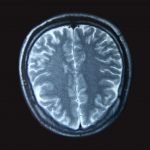Vitamin C Treatment For Septic Shock
Septic shock is one of the main causes of death in critically ill patients following infections. Septic shock causes refractory hypotension, where the treatment is often fluid resuscitation and catecholamine vasopressors. Exogenous norepinephrine given as treatment is processed by the copper-containing enzymes dopamine B-hydroxylase and peptidyglycine a-amidating monooxygenase. Both of these enzymes require ascobate, or vitamin C, as a cofactor. Due to this, patients in septic shock often present with hypovitaminosis C. To date studies have shown that treatment with high-dose ascorbate decreases pro-inflammatory biomarkers and improves haemodynamic markers.
In healthy individuals, levels of ascorbate are usually around 50-70 umol/l. Levels <23 umol/l are considered to be deficient or hypovitaminosis C, where as <11 umol/l would be considered severely deficient. Past research has shown that ascorbate levels are severely deficient in critically ill patients, as in the case with sepsis. A recent study examined the effects of intravenous ascorbate in patients suffering from severe sepsis. Intravenous infusions of ascorbate of 0, 50, or 200 mg/kg/24hr were administered. The results showed rapid reductions in pro-inflammatory biomarkers C-reactive protein and procalcitonin. Furthermore, no adverse effects were found in this trial. These findings are important as these treatments of intravenous ascorbate could eliminate or minimize the need for exogenously administered vasopressors.
http://www.ncbi.nlm.nih.gov/pmc/articles/PMC4661979/










